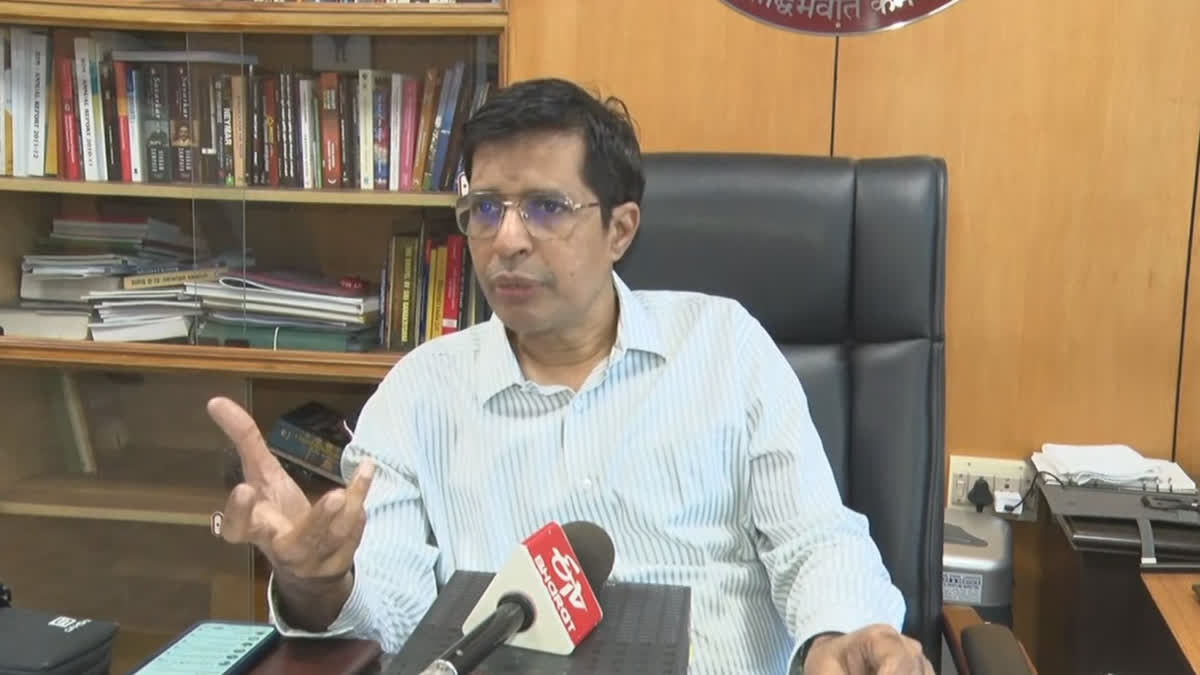'One of the important things that IIT Madras has done in the past is the strategic plan': IIT Madras Director Chennai:The Indian Institute of Technology (IIT) Madras has recently secured the top rank in the National Institutional Ranking Framework (NIRF)-2023. The government ranking evaluates higher education institutions using a variety of criteria, including research and stakeholder perception.
Speaking to ETV Bharat, IIT Madras Director Professor V Kamakoti said, "IIT Madras has secured first rank for the fifth consecutive year in the NIRF ranking. The NIRF rate is based on five major parameters and there are more than 70 data points. The data points indicate that there is a contribution from multiple stakeholders, including students, staff, faculty, industry partner, alumni, state government, central government, and the different ministries. This is a cohesive effort of all the stakeholders."
When asked about the plan of IIT Madras, Kamakoti said, "One of the important things that IIT Madras has done in the past is the strategic plan that we developed using our faculty, staff and students. They are now in the second strategic plan for 2022-2027. That has given a very clear goal and orientation for the entire institute."
Also read:IIT Madras develops screening device for assessing blood vessel health
When asked about state government schools, Kamakoti said, "IIT Madras has tied up with the government of Tamil Nadu and we are reaching out to 252 government schools and introducing electronics to Class IX to Class XII students. The Chief Minister of Tamil Nadu came and inaugurated the programme. Through this, more than one lakh children per year are getting introduced to fundamentals of electronics and 25,000 intermediate students every year will come out with a deep knowledge of electronics."
When asked if the students studying at government universities have a very less number of jobs. Responding to this, he said, "We are conducting many finishing school courses. Last year we had a project and we recruited 30 students from the below poverty line. And after six months of training, all 30 secured jobs. We also provide scholarships as well."
When asked that after Covid, students were very stressed, Professor said, "We were affected by many unfortunate events mainly deaths by suicide. We witnessed five deaths by suicide in six months. That was an eye-opener for us. We have taken a lot of steps to address this. After Covid, we had to reboot the campus and then start again the process. By that time we had put things in place. However, we had many unfortunate events. We conducted a survey with Tamil Nadu's National Health Authority. We put up an independent set of councillors. We put seven to eight support systems that have shown very good results today. Now, the students are coming and they say that everybody has stress, but they now can address the stress."
